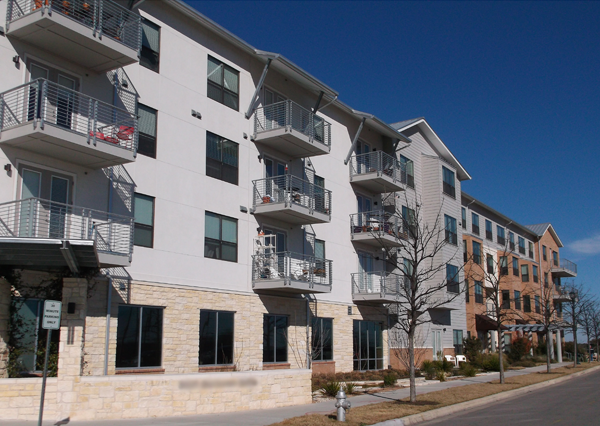 One of a Homeowner Association’s (HOA’s) or Condominium Association’s most commonly overlooked and poorly monitored responsibility is the matter of insurance coverage. If disaster strikes, it can be a very costly oversight for each and every unit owner, as well as members of HOA Board of Directors individually. Here is the insurance coverage your condo HOA should have.
One of a Homeowner Association’s (HOA’s) or Condominium Association’s most commonly overlooked and poorly monitored responsibility is the matter of insurance coverage. If disaster strikes, it can be a very costly oversight for each and every unit owner, as well as members of HOA Board of Directors individually. Here is the insurance coverage your condo HOA should have.
What Types of Insurance Coverage Should Condo HOA’s Consider Carrying?
The following is not intended to be construed as insurance advice. It is offered for general consideration as a checklist of insurance issues that should be reviewed regularly to protect the assets and property of the members.
Fidelity Insurance
Most HOA’s and condominium association’s are at least generally aware of the need to maintain insurance protection against embezzlement or theft by board members or staff. Even though condominium statutes require insurance coverage, most associations simply don’t have ample coverage or the policies are improperly structured.
The insurance should be issued in the association’s name with the property management firm covered as well. Including the property manager protect the association against theft or embezzlement by the management company’s principals and the individual property manager.
Director’s and Officer’s Liability Coverage (D&O)
Claims against directors and officers for violations of Fair Housing Laws, Discrimination, and Unfair Employment Practices are typically covered by D&O liability insurance. The HOA should obtain a policy that pays defense costs and any judgments levied against the association not just an indemnity policy. Make sure that the coverage limit does not include defense costs or legal expenses could absorb most of the coverage limit leaving little, if anything, to pay a judgment.
Deductibles and Shifting Loss
HOA’s would be wise to review the impact of increasing the deductibles in their insurance policies and adopting a resolution requiring unit owners suffering damage covered by the master insurance policy to pay the condominium association’s deductible. Units are are normally covered for this risk by their personal homeowner policy. Some forward thinking associations are now requiring unit owners to carry a homeowner’s policy and provide evidence of coverage.
Agreed Amount Endorsement
This coverage eliminates the penalty realized if the HOA is underinsured. For example, if your building is insured for only $20 million and it should be insured for $40 million, the insurer would be required to pay only half of any claim – $100,000 on a $200,000 loss. An agreed upon endorsement would ensure that the full claim would be paid regardless of the differential. Agreed amount endorsements are reasonable and commonly available, but the HOA must request it.
Surplus Lines
Policies written through excess and surplus lines carriers excuse risks, such as, terrorism and mold. Be sure to ask your insurance advisor exactly which risks are excluded in the coverage. Monitor the source of insurance especially when changing carriers to avoid dangerous gaps.
Non-Hired Automobile Coverage
Should a Board Member conducting board business accidently kill another person and the member’s personal insurance is insufficient to cover the claim, the victim’s family can sue the condominium association’s trust for the unpaid amount. For a small fee, the association can secure an additional $1 million in coverage for this risk. Every association needs this protection.
Worker’s Compensation
Even if the HOA does not have any employees, workman’s comp coverage is necessary, here’s why. Suppose a water pipe burst in the early morning hours brings a emergency plumber out and no one asks to see the contractor’s certificate of insurance. A worker is injured and the contractor provides no coverage for his employees. A court and state agency may find that the contractor’s employee was the association’s employee and the HOA is obligated to pay the worker’s medical expenses. Check it out.
Mold Coverage
Mold – the bane of the real estate industry and individual property owners across the nation. Insurance carriers have been successful in limiting mold liability coverage.
Earthquake Insurance
Not an issue here in Texas necessarily, but the highest risk is for buildings constructed on landfill. Some level of coverage is important for multi-family structures. Consult your insurance advisor to determine whether earthquake insurance is appropriate.
Why Should Buyers Care What Insurance My Condo HOA Carries?
Though these policies will increase monthly HOA dues for owners, the increase is nothing compared to the risk of having a claim. If the HOA can’t cover the claim, condo owners could be required to come up with a share of the claim. Sufficient insurance coverage is good protection for HOA’s as well as condo owners.
Condo Owners Still Need Contents Insurance
This summary address insurance issues revolving around the buildings and not personal contents of the condo owners. Owners and renters need additional coverage – separate and apart – for their personal property and belongings. Contact your insurance agent.
There is a Lot to Consider when Buying a Condo – Hire an Experienced Buyer’s Agent
An experienced buyer’s agent knows the questions to ask so you understand what you’re buying and put as little of your money at risk as possible. Our team of experienced buyer’s agents know how to help condo buyers buy right. Check out our Austin Condo Buyer section to learn more about our team and our top rated home buyer representation program. Then, fill out our Buyer Survey, email us at info@11OaksRealty.com or call us at (512) 827-8323 to schedule a no obligation consultation.
Leave a Reply